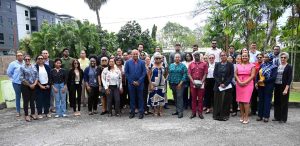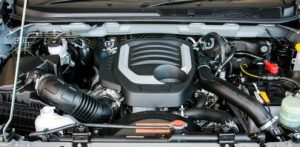
I DON’T consider myself a “pushy” parent. I like to think I am more of a “guider”. You know, I try to guide my children to do their best, give them options, assess things that might work best for them and guide them to make good decisions.
Take my daughter for example… What’s that kid, after four years of gymnastics and you still can’t do a cartwheel, but you love kicking your brother, let’s try football. Oh surprise, surprise, you love it. Guided!
The only time my calm guidance goes full neurotic is around exams. I go from a calm “you-do-you-kid” type mother, to a mildly sociopathic Eastern European gulag officer. I am not proud of it, I am working on it, but I am being honest.
Luckily, my children ignore my temporary insanity, they are oddly chill and do very well in exams… suspiciously well… but a that’s whole different issue.
Due to my shaky mental footing around exam time, I am not looking forward to my children sitting the Secondary Assessment Examination (SEA). I mean if mid term exams in Standard 3 are giving me heart palpitations, SEA may kill me.
Year-after-year, the same question emerges, “Should SEA be abolished and how do we then deal with assigning children to secondary schools?”
Naturally, there are those who straight up oppose the exams, labelling it as “cruel” and “unfair”. They are not wrong, SEA is unfair. Children who come from homes where they are afforded extra lessons, tutors and heavily involved parents who have time, will always do better, than children from less privileged environments. This is the main contributor to the disparity in our educational system, where those who are most in need of support and education are unable to get it due to their lack of resources.
Then there are those who shrug their shoulders and say, “You know what? Life is hard, they have to learn how to deal with stress. The exam prepares them for the ‘real world’ and helps them develop discipline.”
Cannot argue with them either. Life is unfair and as parents we cannot hide our precious crotch goblins from stress or hardship. I do wonder though, if the parents that say this are those with resources or those who are busting their asses at minimum wage jobs or are unemployed, struggle to send their children to school, do not have a strong education themselves and it’s not that they don’t love their children, they are just trying to keep their heads above water. Life really isn’t fair.
How do we move away from SEA? As a parent and a professor in common sense, I would like to suggest a two-prong approach in how we can assign children into secondary schools in a way that take into account each child’s strength and hopefully provides a more equitable system of education.
Part one: There should be no huge, one and done exam. Children should take part in continuous assessment that begins in Standard 3. These assessments can come in the form of their regular end of term exams, projects and in schoolwork. Through these assessments’ educators, along with in put from parents can figure out if a child is more science and math inclined, more arts inclined, benefits from more physical, hands on approaches, and so forth.
From this, children should be assigned to secondary schools that best suit their learning styles.
Part two: This is the hard part, because it involves a lot of work, money, time and cooperation from the government, teachers, private sector investors, religious organisations and all others with skin in the game. A new system of secondary education needs to be developed. Schools need to abandon the old British system. I recommend the Canadian system, which is more holistic, and children are exposed to all subjects through out their five or seven years.
Additionally, classes are offered at different levels. Take math for example, you can have advanced math, regular math and practical math.

Beyond the scope of the curriculum, investments should be made on creating “specialised” public schools. For example, Ray isn’t an academic learner, he shows interest in mechanical things, therefore he should go to school that along with the basics of math, English, etc., also offers trade courses in mechanics, welding, masonry etc.
Schools can also be tailored for children who may have an interest in agriculture, sciences, creative and performing arts.
These specialised schools prepare children to either further their education at the tertiary level, l or enter the work force with the knowledge they need to start careers.
There also needs to be schools in place for children with different learning abilities, where they can receive support and guidance from properly trained staff to help them excel.
The best way to move our nation forward is through an empowered, confident, future generation that has been given a strong educational foundation. SEA does the opposite of this, and it is time we look at modern, holistic methods of education.
![]()












